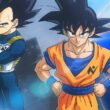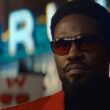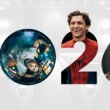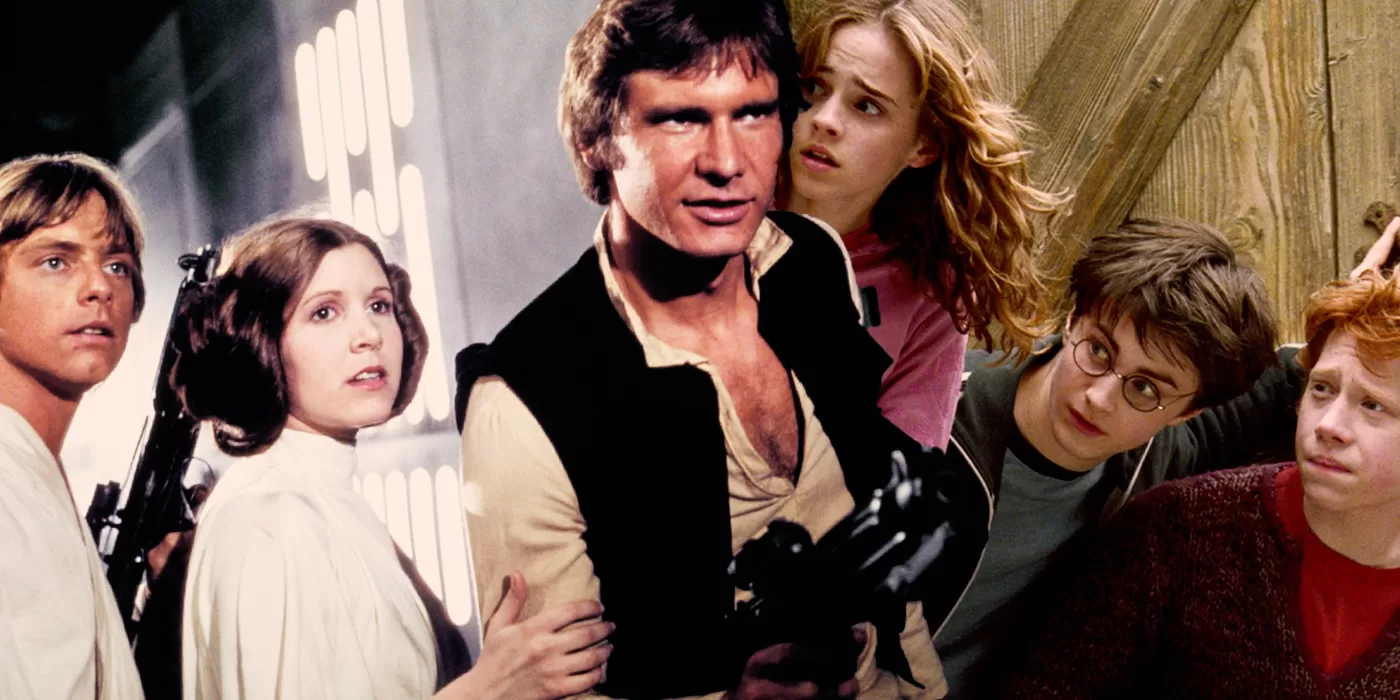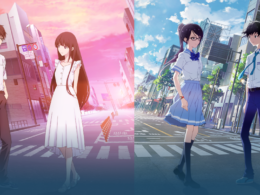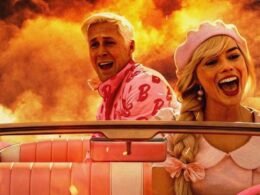
As Doctor Strange in the Multiverse of Madness hits Disney+, it’s time to acknowledge the film’s biggest fumble: America Chavez. But before we begin, I need to make one thing absolutely and abundantly clear:
This is not about Xochitl Gomez, a 16 year-old girl who does not deserve the internet vitriol she’s received. To go after a child for the decisions of a multi-billion dollar corporation is pathetic, frankly.
Now, let’s get into the ways Marvel has thus far failed a pretty unique character’s intro to their cinematic universe.
Who Is America Chavez?
Created in 2011 by Joe Casey and Nick Dragotta, America Chavez is a super-powered, lesbian, Latinx teenager with the ability to punch star-shaped portals in the multiverse. But that’s not the end of her powers. She’s also super-strong, super-fast, and she can fly.
You might think someone with this much going on must be pretty self-confident. You are not wrong. Above all else, America’s most pervasive characteristic is her confidence, so much so, she’s almost cocky. But America backs it up. She’s the comics equivalent of Steph Curry turning around and celebrating a three-pointer before it goes in. Yeah, there’s an arrogance there, but the ball went through the hoop.
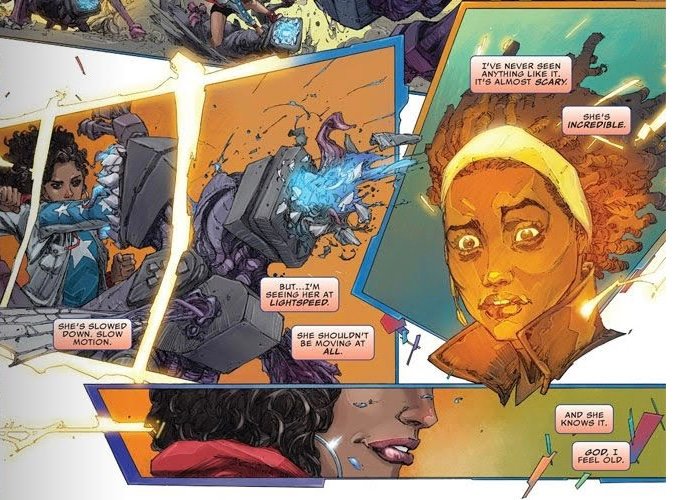
The first origin of America Chavez introduced her as a being from another dimension, called the Utopian Parallel. The U.P. was fully populated by women who were not technically Latinx, but were coded as such.
Pretty cool character, right? Someone you’d be excited to see on the big screen? Sigh.
MCU America Chavez’ Defining Characteristic? Self-consciousness
Look, I get it. There are going to be differences between the comics and the MCU. MCU Spider-Man doesn’t have an Uncle Ben moment, Thanos isn’t down bad for Lady Death, and Baron Zemo isn’t a literal Nazi. The changes are fair, they’re fine, and in many cases, they’re an improvement. Likewise, it’s fair that the MCU version of America Chavez is initially defined by her lack of confidence, so long as she’s the Steph Curry version of herself by the time the end credits roll. Sadly, that doesn’t happen. She has one scene where she gets a “the magic was inside you all along” pep talk from Zombie Doc Strange, but that’s about it. By the end of the film, she’s struggling to make sling ring portals at Kamar-Taj. Read that again. SHE’S STRUGGLING AT MAKING LESS POWERFUL PORTALS THAN THE ONES SHE ALREADY MAKES WITH HER FISTS.
And about that pep talk: The MCU has had two fairly cocky protagonists – Tony Stark and Dr. Strange. Yet somehow Tony Stark didn’t need Pepper to tell him that he was good at machines, and Doctor Strange didn’t need the Ancient One to tell him he was awesome at spells. If anything, the talks they receive are the kind that bring them down a notch or remind them that the world needs them to get over themselves. So why does America Chavez require an outside figure to tell her who she is?
The Age Difference
You might have answered to yourself that the difference is her age. Tony and Stephen are grown men, and America is the youngest protagonist in the MCU, so it makes sense that her confidence isn’t fully formed yet. And that’s fair, I suppose. To be frank, it struck fans of the character as a bizarre choice when they announced the then-14-year old Xochitl Gomez was going to play a character who has always been written at college-age. In fact, fans of the character feared that aging her down so significantly was a means to avoid delving into the character’s sexuality in a way that made critics seem like the gross ones for pointing it out. “Dude, she’s 14. Why are you so fixated on her sexuality?”
This touches on the most egregious way the MCU dropped the ball in rolling out America Chavez: Representation.
America Chavez and LGBTQ Representation
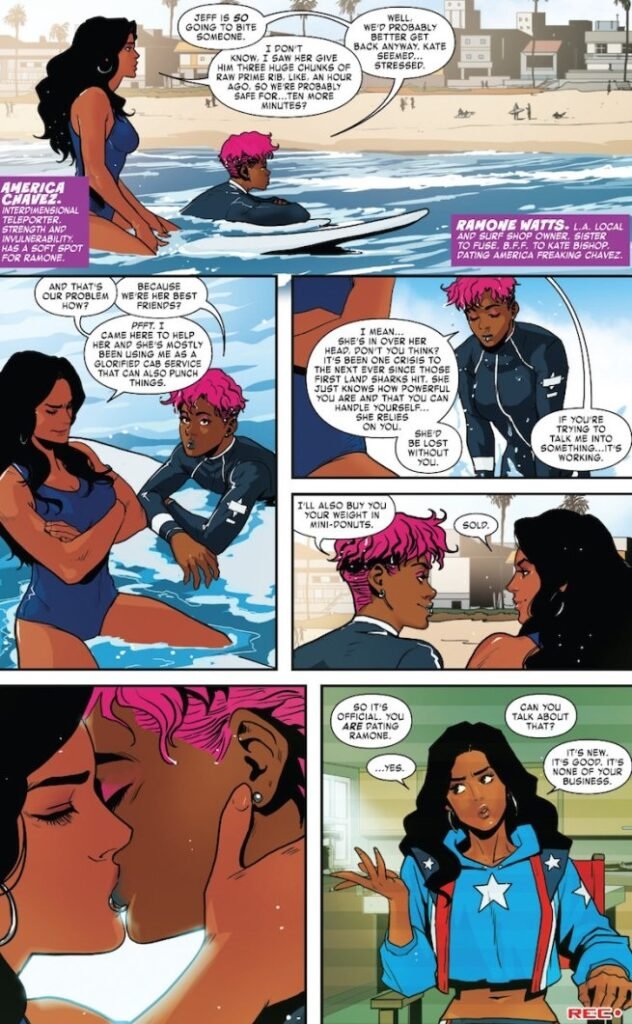
The MCU’s version of America Chavez is a great study in what is and isn’t representation in film. If you knew nothing about the character going into the film, there is a 0.00% chance that you came out on the other side with the knowledge that America is a lesbian character. Much ado was made about certain countries banning the film because Marvel refused to remove a scene dealing with homosexual content, which delighted fans who feared Marvel would sidestep acknowledging the character’s sexuality. Then, as more details came out, it was revealed that the scene in question was 12 seconds long and was the source of controversy because it mentioned America’s mothers. Womp womp [INSERT DISAPPOINTED EMOJI FACE HERE].
Yes, America Chavez has lesbian mothers. And yes, she does wear a nifty if not teeny tiny rainbow flag pin on her trademark jean jacket. Is that lesbian representation in film? I’d argue it’s more a representation of LGBTQ allyship in film, which is not nearly the same and not nearly as significant. America Chavez is supposed to be a beacon for young, queer people everywhere, to show them that there is no shame in being 100% confident in who you are. Alas, we got robbed of that moment. There’s time to steer the ship back to that point in future endeavors, but you only get one shot at a first impression. Anything they do now risks feeling reactive rather than confident from the jump.
America Chavez and Latinx Representation
I mentioned America’s jean jacket. In the comics, it’s sort of her thing. It’s usually depicted with stars and stripes (Did we mention her name is America?) to go along with a blue tee with a white star. In fact, her ensemble is fairly evocative of a Puerto Rican flag. That she’s a New Yorker only drives this fact home. In fact, when she speaks Spanish in the comics, it’s most commonly with a Nuyorican (Puerto Rican from New York City) dialect. She’s basically a cross between Do The Right Thing era Rosie Perez and Supergirl.
In the retcon of her origin, featured in 2021’s “America Chavez: Made in the USA” miniseries, America is from earth, and her late mothers as well as the adoptive family that finds her washed up on a beach are all Puerto Rican. I’m sure you’ve guessed where this is going.
Puerto Rican Erasure
MCU America Chavez bears no cultural markers that would indicate Marvel Studios has any interest in making the character puertorriqueña (or puertorriqueñx, as it were). Xochitl is of Mexican descent and speaks Mexican Spanish. (America calling Strange “güey” is a dead giveaway.) Marvel added a sugar skull image to America’s jean jacket, and I’m sure someone in the costume department was very proud of their nod to Latinx culture. The problem is that there is no such thing as Latinx culture. Latin America is a huge place with diverging and intersecting cultures. Puerto Ricans have no affiliations with sugar skulls the same way Carnivale is not a Mexican tradition, and so on. In opting for an “All Latinos Matter” approach to Latinx representation, Marvel erased the only Puerto Rican representation we’re likely to get in the MCU until Miles Morales, unless there’s a White Tiger series I haven’t heard about.
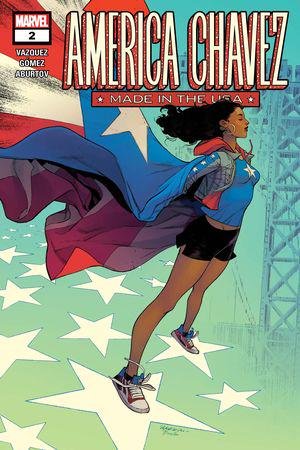
You’ve probably guessed by now that I am Puerto Rican. Frankly, I probably wouldn’t have written this piece if I wasn’t. Erasing America Chavez’s Puerto Rican cultural identifiers hurt on a personal level, especially as I consider how rich the experience of introducing the character could have been.
What Could Have Been
As Ms. Marvel continues dazzling us with its originality and cultural specificity, I can’t help but mourn the America Chavez Disney+ we’ll never get. I imagine meeting this girl in the context of a street-level series set in Washington Heights, NYC. I imagine getting to meet her adoptive family, and having as fun a time learning about Puerto Rican culture as we all are learning about Pakistani culture with Kamala Khan. I squeal at the thought of Feige bringing out Puerto Rican royalty, from Rita Moreno to Lin-Manuel Miranda to JLo. I imagine discovering who America Chavez is as a character rather than using her as little more than a walking MacGuffin.

The Disney+ series I see in my head fills me with joy. It’s In the Heights, with less musical numbers and more Afro-Latinx representation. It’s the chance to give us the self-conscious to self-confident character arc that Multiverse thinks it gave us. It would have been an opportunity to open up the Nuyorican corner of the MCU, with the myriad characters that entails. (A few White Tigers, Power Man, and my personal favorite: Señor Mágico- the role Luis Guzmán was born to play). The series could have dealt with a real issue facing Latinx communities in major cities (immigration, gentrification, etc.). It could have been our Ms. Marvel.
Conclusion
I understand the powers that be want America Chavez to be a beloved character in their cinematic universe. They wouldn’t have rolled out the red carpet and shoehorned her into a big blockbuster like Multiverse of Madness otherwise. However, the frenetic pace of the movie, not to mention the daunting shadows of her co-stars, overpower her. There is at least a third of this movie where you forget America Chavez even exists. I wasn’t wrong, referring to it as shoehorning her in to the movie. She’s a star-shaped peg in a hex-shaped hole, and she ultimately gets almost no character development as a result.
America Chavez deserved better.

